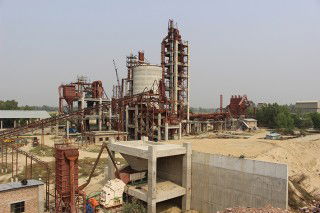New Zealand’s concrete industry has launched its roadmap to net zero carbon by 2050 - A Net Zero carbon concrete industry for Aotearoa New Zealand: Roadmap to 2050.
Concrete New Zealand (NZ) CEO, Rob Gaimster, described the Roadmap as a pivotal moment for the concrete industry and the country’s built environment. "We must provide adaptive solutions that address and help ease the impacts of climate change in a country that is also at risk of earthquakes, tsunamis and volcanoes," Mr Gaimster said.
"Based on this roadmap, the Aotearoa New Zealand concrete industry can achieve a 44 per cent decrease from 2020 levels [of Scope 1 and 2] by 2030, and ultimately net zero carbon by 2050," added Barbara Nebel, CEO of thinkstep-anz. Approximately 34 per cent of the decarbonisation is planned to come from carbon capture ad 28 per cent from CO2 reductions in cement and binders, while clinker reduction is the third largest lever for reducing emissions acounting for 12 per cent of teh reductions.
Fletcher Concrete CEO, Nick Traber, believes the roadmap reflects the genuine direction of companies such as his. "We are playing a key role in reducing emissions right from using alternative fuels and raw materials in cement manufacturing, to our low carbon supply chain and low carbon binder technology developed in our research lab focussed on sustainable concrete solutions."
CEO of Holcim Australia and New Zealand, George Agriogiannis, feels that industry is walking the talk outlined in the roadmap after having invested significantly in researching and producing new lower-carbon products.
"We [Holcim New Zealand – Holcim Group] have also constructed a new low-carbon cement replacement facility at the Ports of Auckland. At peak operation the site is expected to enable replacement of just under 100,000t of ordinary Portland cement (OPC), which will substantially reduce greenhouse gas emissions. Annually, this is the equivalent of removing approximately 78,000t of carbon dioxide," said Mr Agriogiannis.
